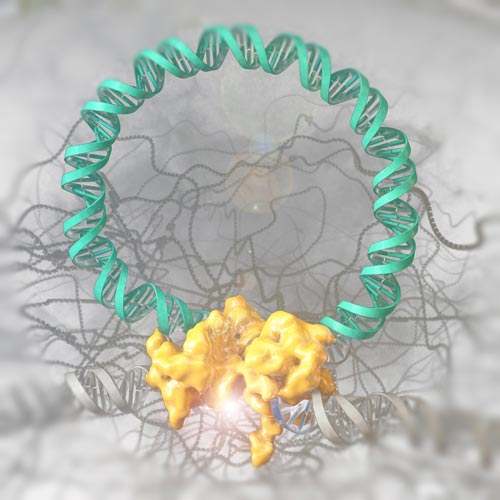Frank Buchholz Group
Functional genomics & Genome Surgery

© CRTD
Sequencing of whole genomes has provided new perspectives into the blueprints of diverse organisms and has identified many disease causing alterations. Our laboratory is using different strategies to dissect and correct gene function in mammalian cells.
Advanced genome engineering
The need for fluent and precise genomic manipulation strategies has been exacerbated by the increasing pace of published genome sequences. Beyond the reading of complete genomes, the precise manipulation of the encoded information is becoming more important in modern molecular biology as well as personalized medicine. The field of safe and precise genome editing provides a genuine opportunity to establish innovative approaches to repair DNA mutations to replace, engineer or regenerate malfunctioning cells in vitro or in vivo.
Site specific recombinases are prominent genetic engineering tools that allow an efficient and specific genetic manipulation of whole organisms. In order to expand the usefulness of these enzymes we are developing Designer-recombinases through directed molecular evolution and deep learning-based protein engineering.
Furthermore, we apply the CRISPR technologies to dissect cancer mutations and use sophisticated functional genomics tools (esiRNA and CRISPR screens) to identify cancer cell vulnerabilities. By combining our knowhow in genome editing and functional genomics, we aim at improving cancer patient diagnostics and therapy.
Future Projects and Goals
- Develop and apply tools that allow flexible and precise genomic manipulations
- Apply CRISPR/Cas9 system to functionally dissect cancer mutation at large scale using cancer cell lines and cancer organoids
- Perform large scale RNAi/CRISPR screens in cell lines and primary human cells (organoids) to identify and characterize factors implicated in cellular transformation
- Perform phenotypic profiling in primary human cells to identify and characterize candidate genes with therapeutic potential
Methodological and Technical Expertise
- Site-specific recombination
- Directed molecular evolution
- CRISPR/Cas9 technology
- Long read PacBio sequencing
- Nanopore sequencing
- Large scale RNAi/CRISPR screens
- BAC-tagging
- Live cell microscopy
- Organoid culture
- Deep-Learning/KI
